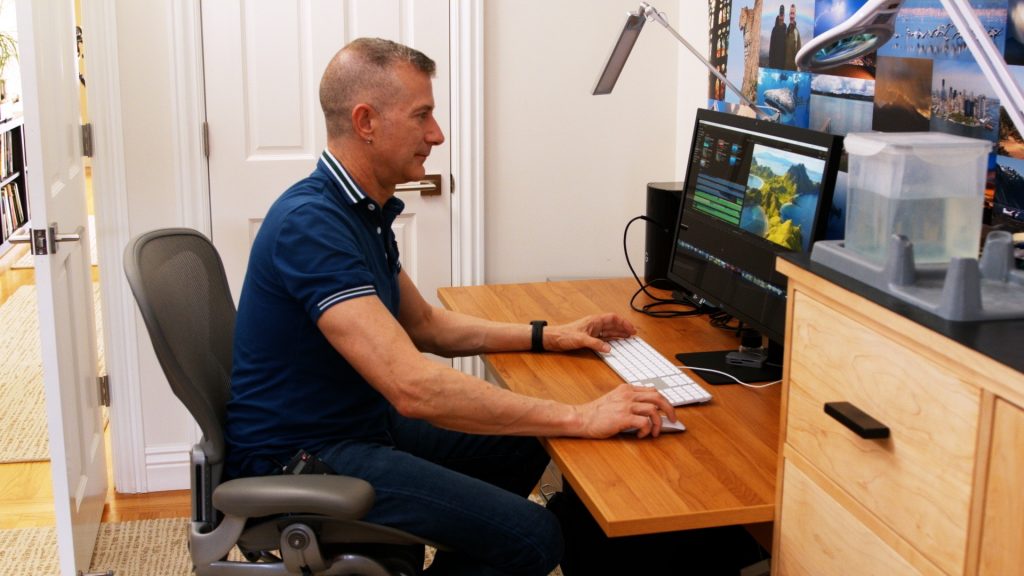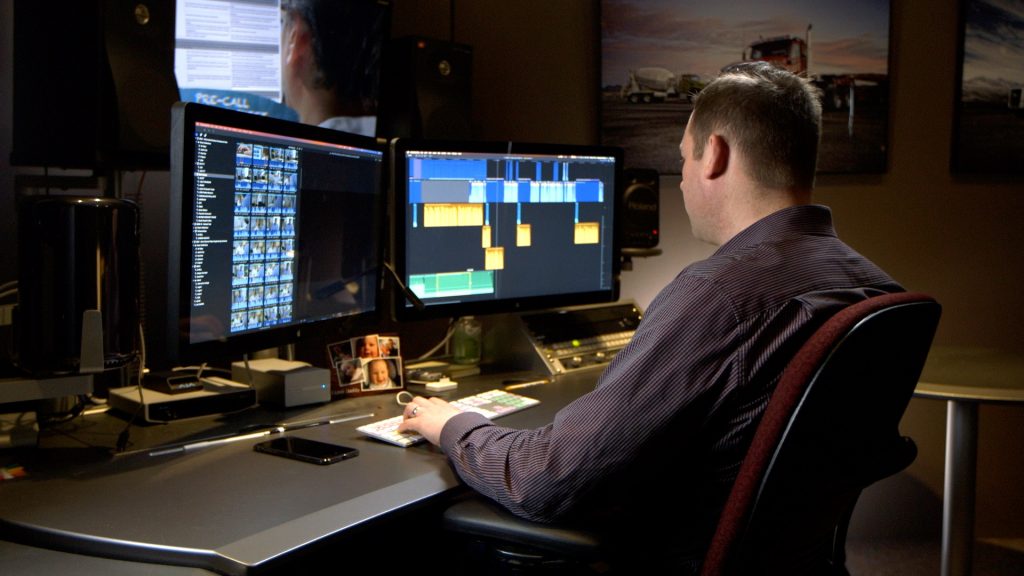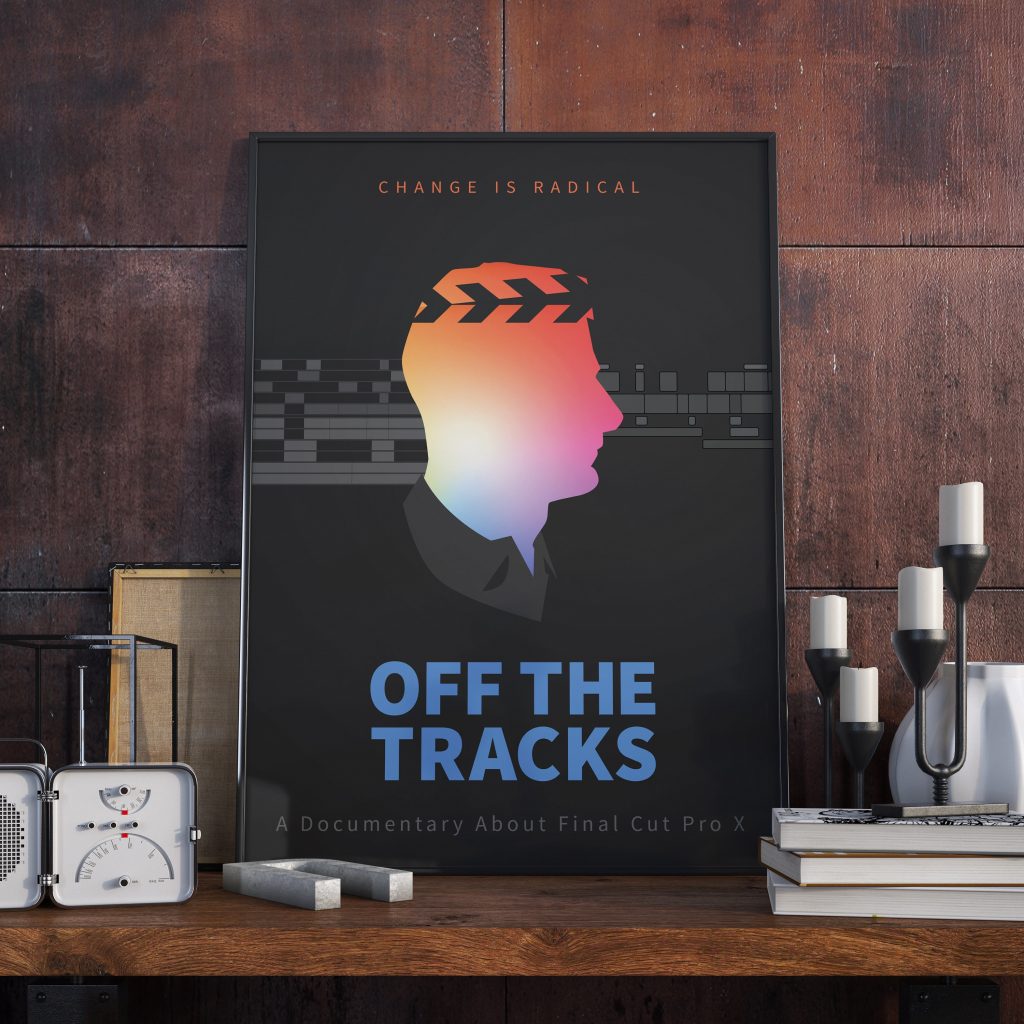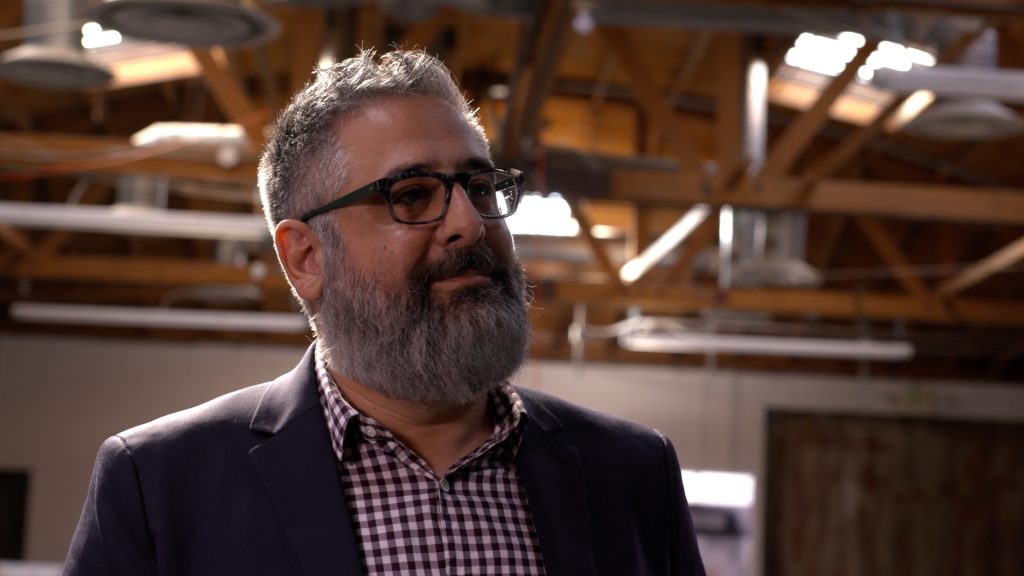
This Upcoming Documentary Features Top FCPX Editors
Off the Tracks will feature many top FCPX editors. In this interview, the director shares his experience filming with these experts.
Have you ever been interested in learning more about the mistakes Apple made in releasing FCPX and killing off FCP7? If so, the documentary film Off the Tracks aims to answer your questions about the work that went into building FCPX. It also features many of the top FCPX editors discussing their likes and dislikes of their preferred Final Cut Pro workflows.
Take a look at the trailer, which also happens to have a brief glimpse at one of our earliest reviews of FCPX.
To learn more about the film, we reached out to Director Bradly Olsen for more insight. Here’s what we learned.
PremiumBeat: For Off the Tracks, you interviewed many of the top FCPX users in the world. In your trailer, they all discuss their disappointment with the initial launch. Why did many of them stay with the platform?
Bradley Olsen: Some of them actually stuck with Final Cut Pro 7 for a while and waited six months to a year to see what would happen with Final Cut Pro X. By that point, Final Cut Pro X had come a long way in terms of functionality. Most of the original major complaints had been addressed by that time. I think many of them looked around at the other options, but after getting used to FCPX, everything else just seems old fashioned.
Even though a lot of people were negative in the beginning, there were a few voices out there that believed Apple’s message that FCPX is the future of editing. I remember paying close attention to what Steve Martin and Mark Spencer were doing — that was an indicator to me of whether or not FCPX would even have a future. Peter Wiggins was paying attention and wrote a lot about what was happening on his site FCP.co. And eventually Chris Fenwick added his voice with his podcast FCPX Grill. There’s an entire community that has rallied around this piece of software and supports it. You just have to know where to look.

Randy Ubillos, designer of Final Cut Pro 1-7, Final Cut Pro X, and Premiere via Off the Tracks.
PB: You had the chance to interview the original designer of FCPX, what insight did this offer regarding Apple’s choice to create such a radical redesign?
B.O.: Randy Ubillos, who created Adobe Premiere in the early ’90s and went on to make the original Final Cut Pro, had a lot of really interesting things to say about that. For most people, getting into editing Final Cut Pro 7 took a lot of time and energy. There were entire classes devoted to tips and tricks that involved complicated steps in order to accomplish tasks that could have been made simpler in the application itself. According to Randy, this pointed to an underlying problem with the software.
Randy talked to editors who were doing long-form projects, and when they were close to being done, they didn’t want to make any changes at the beginning of a sequence because they were afraid they might accidentally knock things out of sync further down the timeline. The vertical relationships between titles, music, effects, and the corresponding video clips only existed in the editor’s head. The existing software had no mechanisms to keep track of that. Clearly there were some fundamental issues with the traditional track-based paradigm that could use some improvement.
It’s interesting to look back at what lead up to Apple making this change. By Final Cut Pro version 5, Apple had come to be a dominant NLE and the preferred choice for many editors, especially people making documentaries and working outside of the Hollywood system. But the only thing that really differentiated Final Cut from the competition at that time was its lower price. It pretty much functioned the same way as the other systems. If you think about it doing the same thing as everybody else only for cheaper is not really the Apple way of doing things.
From what I’ve gathered, there must have been a 64bit version of Final Cut being developed sometime after the release of Final Cut Pro 5 or 6. It was probably what most editors wanted at that time: a 64bit version that looked and functioned largely the same way as the previous versions. Steve Jobs saw that and told the Final Cut team that that wasn’t the direction they would be taking. If they were going to rewrite the software for 64bit, there was an opportunity the rethink the fundamentals of video editing for the modern digital era. Isn’t that what Apple is about? “Think Different.”
FCPX is powerful yet easy-to-use software. That was what Apple set out to do when they started making it. Because Apple is a company with multiple revenue sources, they could afford to take a risk with Final Cut in a way that software-only companies can’t do as easily. A software-only company can’t risk alienating their existing users even if it means that they’ll get a wider user base in the long run. Based off the information I’ve been able to gather, it appears that Final Cut Pro X has done far better financially than its predecessor did, so I’d say Apple took a gamble and won.

PB: For many people, the redesign of Final Cut Pro was the catalyst to switch to Premiere. Did many of your subjects attempt the switch as well? If so, what made them stick with FCPX?
B.O.: A few of them did talk about trying Premiere. First I’d like to clarify that my documentary isn’t really about NLE wars, although I certainly could’ve taken it that direction. I compare the differences between the paradigms of course, but I didn’t feel like it would be productive to slam one piece of software in an attempt to build up the other.
Now with that out of the way, people may or may not remember, but when FCPX was launched in 2011, Adobe Premiere CS5 was not really a suitable replacement for Final Cut Pro 7. CS6 was released in 2012, and that was Adobe’s attempt to get Premiere up to speed. If you were paying attention to FCPX, then you knew that it was also undergoing rapid development at that time. If you were excited by the new ideas in FCPX 10.0 but bugged by the lack of XML, Multicam, and Broadcast Monitoring, then the majority of your complaints were addressed by early 2012. If you were turned off by Apple’s ideas for Final Cut entirely then Premiere was the comfortable choice.
Several of the editors I talked to did try Premiere for a time. But they had serious issues with its stability in a professional environment. I’ve heard plenty of stories about how Premiere had failed when put under pressure, and that’s unacceptable when you’re on a job. Most of those stories were from a few years ago, and Premiere has come a long way since that time. Although I do hear about serious bugs from time to time. In fact, there was that whole deleted media assets debacle just a couple months ago. But even I use Premiere on occasion; it has a solid foothold in the professional video world.
I think what makes people like me prefer FCPX is that we’ve worked a lot in traditional systems, and we’ve embraced this new way of doing things. We see that we can get things done faster. It’s hard to convince experienced editors on other platforms that it really is much faster. When they try it out for the first time, the magnetic timeline seems counter-intuitive. But once you get over the learning curve, there’s a switch that just clicks in your head, and editing has never been more enjoyable. Beginners don’t have that learning curve because they aren’t mired down in old ways of thinking. They get up to speed quickly and accomplish previously complicated tasks with ease. That means more kids are going to get into this and that makes me hopeful for FCPX’s future.

PB: During your research, did you find that Apple was surprised at the resistance and lackluster reviews at the launch of FCPX?
B.O.: I would assume that most of the FCPX team saw the resistance coming to some extent. In fact, Randy told me that he knew there was going to be a problem a year in advance. His idea was to give away a copy of 7 with every new purchase of X. Obviously he was overruled. But I don’t think anybody had anticipated the level of negativity Apple got for the release of FCPX. If Apple had understood the full extent of the backlash they would get ahead of time, I’m sure they would have handled the launch differently. They underestimated how loud professionals can be — probably because professionals make up such a small number of their overall customer base.
Michael Cioni, Senior Vice President of Innovation of Panavision and Light Iron, told me that if you’re successful you’ll have enemies. People like seeing Goliath fall, and this story certainly made for a good headline along those lines. But a lot of those articles and early reviews didn’t tell the whole story. In fact, most of the people who were very negative hadn’t actually used the software, not in any real-world scenario anyway. Many of us who actually did give it a fair shot saw its potential. We saw room for improvement and new possibilities. A lot of people are still missing out because their minds are stuck in 2011.

Glenn Ficarra, co-director of “Focus” and “Whiskey Tango Foxtrot” via Off the Tracks.
PB: To me, there seems to be a bigger message with your film. What did you learn about how people react to change?
B.O.: I’ve learned that in many cases it is the default mode of the human condition to be resistant to change. A lot of people don’t want to learn new things, especially if they’ve spent a lot of time learning something already that they think does the job just fine. There is also a lot of fear and uncertainty involved when taking the risks associated with making changes. I find it ironic that video editors, who work in an industry that revolves around constant technological evolution, often have the most luddite mentalities out of anybody when advancements are made.
What Apple did with FCPX is divide editors into different camps. There were valid reasons to be upset at Apple in 2011, but those people who are remain angry to this day largely define themselves by their tools. They feel like they had put so much time and energy into learning where all the buttons, dials, and knobs were on the previous system, and they didn’t have the energy to learn an entirely new way of doing things. Telling them that Apple had made editing easier was not reassuring either. So now some kid can come along and do the same thing as me without any training? But if that’s how you felt, then you forgot what you actually should have been learning all along, which is storytelling! That skill can translate to any tool that you end up using.
To be clear, I don’t believe that everybody who abandoned ship with FCPX are tool users only. A lot of creatives are happily telling stories with Premiere. They’ve adapted to change in their own way. But if you’re still hung up about FCP7 going away after all these years, then maybe you should ask yourself why that is. The people who got onboard with FCPX not only accepted change, they embraced it. So there’s an entire spectrum of people out there who reacted in different ways to what Apple did in 2011. The people that frustrate me the most are the ones that stopped paying attention entirely, spread misinformation about FCPX, and bury their heads in the sand when anybody tries to talk about it.
Ultimately it’s probably a good thing that some older established people get stuck in their ways. It allows younger people to break in and take charge.

One Infinite Loop, HQ of Apple Inc. via Off the Tracks.
PB: What insight did you personally gain about FCPX through interviewing these top FCPX editors?
B.O.: FCPX is being used in every imaginable way on all kinds of projects. Nobody thinks it’s perfect, but it’s going in the right direction. I think I’ve gained more insights into the people who use the software than the software itself. People who use FCPX are very interesting, perhaps a bit crazy. In general, they’re very optimistic about the future of media and enjoy challenging old ways of thinking and doing things. FCPX users are all very opinionated and don’t always agree with each other on what features should be added to FCPX next. But I think they can agree that we want to see a larger talent pool of editors using FCPX to be built up so that this tool can be used in more places. I hope my documentary can inform people in high places about the validity of FCPX as a storyteller’s tool.
To learn more about this upcoming film, visit www.offthetracksmovie.com
What are your opinions on FCPX? Let us know in the comments.






